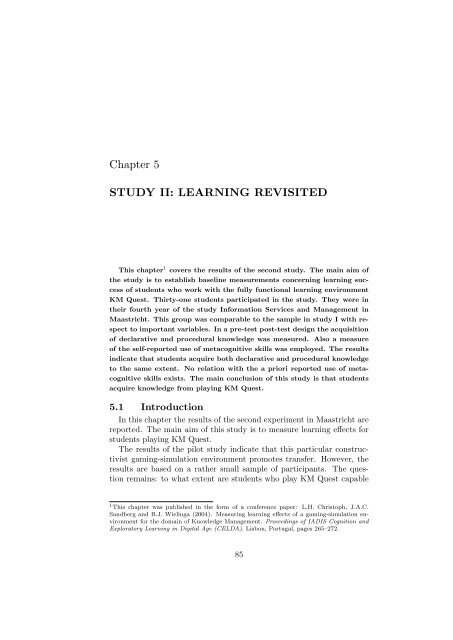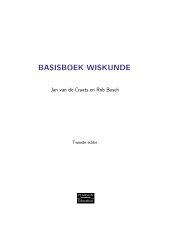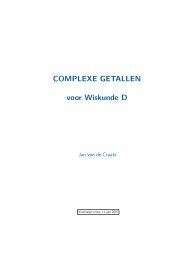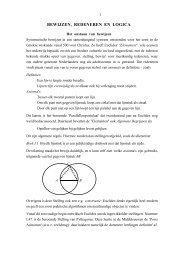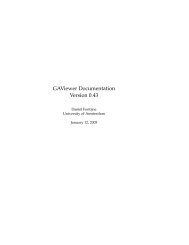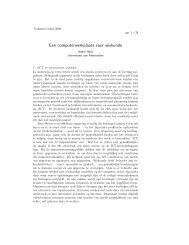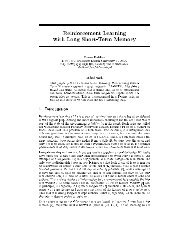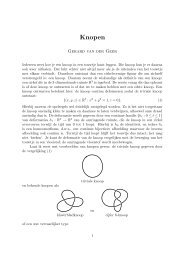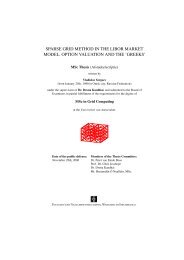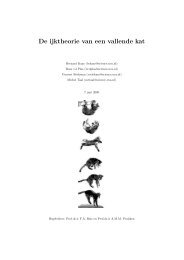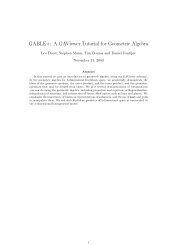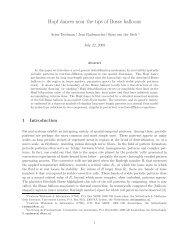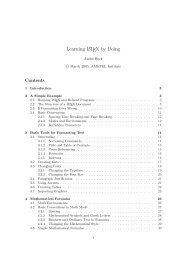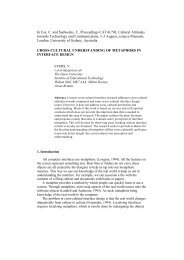The role of metacognitive skills in learning to solve problems
The role of metacognitive skills in learning to solve problems
The role of metacognitive skills in learning to solve problems
Create successful ePaper yourself
Turn your PDF publications into a flip-book with our unique Google optimized e-Paper software.
Chapter 5<br />
STUDY II: LEARNING REVISITED<br />
This chapter 1 covers the results <strong>of</strong> the second study. <strong>The</strong> ma<strong>in</strong> aim <strong>of</strong><br />
the study is <strong>to</strong> establish basel<strong>in</strong>e measurements concern<strong>in</strong>g learn<strong>in</strong>g success<br />
<strong>of</strong> students who work with the fully functional learn<strong>in</strong>g environment<br />
KM Quest. Thirty-one students participated <strong>in</strong> the study. <strong>The</strong>y were <strong>in</strong><br />
their fourth year <strong>of</strong> the study Information Services and Management <strong>in</strong><br />
Maastricht. This group was comparable <strong>to</strong> the sample <strong>in</strong> study I with respect<br />
<strong>to</strong> important variables. In a pre-test post-test design the acquisition<br />
<strong>of</strong> declarative and procedural knowledge was measured. Also a measure<br />
<strong>of</strong> the self-reported use <strong>of</strong> <strong>metacognitive</strong> <strong>skills</strong> was employed. <strong>The</strong> results<br />
<strong>in</strong>dicate that students acquire both declarative and procedural knowledge<br />
<strong>to</strong> the same extent. No relation with the a priori reported use <strong>of</strong> <strong>metacognitive</strong><br />
<strong>skills</strong> exists. <strong>The</strong> ma<strong>in</strong> conclusion <strong>of</strong> this study is that students<br />
acquire knowledge from play<strong>in</strong>g KM Quest.<br />
5.1 Introduction<br />
In this chapter the results <strong>of</strong> the second experiment <strong>in</strong> Maastricht are<br />
reported. <strong>The</strong> ma<strong>in</strong> aim <strong>of</strong> this study is <strong>to</strong> measure learn<strong>in</strong>g effects for<br />
students play<strong>in</strong>g KM Quest.<br />
<strong>The</strong> results <strong>of</strong> the pilot study <strong>in</strong>dicate that this particular constructivist<br />
gam<strong>in</strong>g-simulation environment promotes transfer. However, the<br />
results are based on a rather small sample <strong>of</strong> participants. <strong>The</strong> question<br />
rema<strong>in</strong>s: <strong>to</strong> what extent are students who play KM Quest capable<br />
1 This chapter was published <strong>in</strong> the form <strong>of</strong> a conference paper: L.H. Chris<strong>to</strong>ph, J.A.C.<br />
Sandberg and B.J. Wiel<strong>in</strong>ga (2004). Measur<strong>in</strong>g learn<strong>in</strong>g effects <strong>of</strong> a gam<strong>in</strong>g-simulation environment<br />
for the doma<strong>in</strong> <strong>of</strong> Knowledge Management. Proceed<strong>in</strong>gs <strong>of</strong> IADIS Cognition and<br />
Explora<strong>to</strong>ry Learn<strong>in</strong>g <strong>in</strong> Digital Age (CELDA). Lisbon, Portugal, pages 265–272.<br />
85


